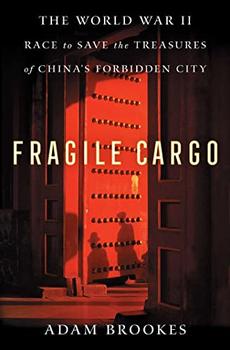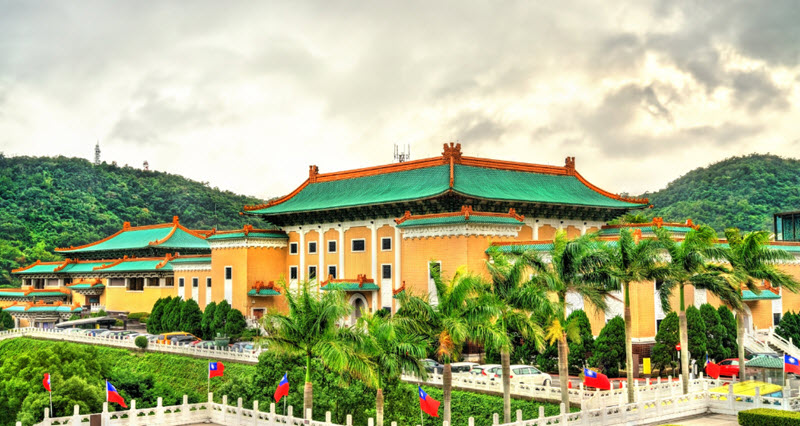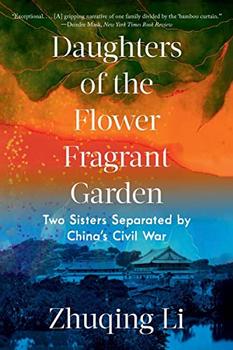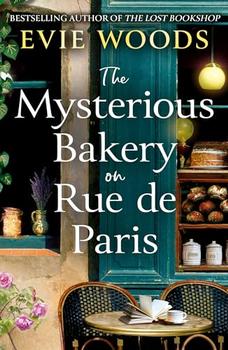Summary | Excerpt | Reviews | Beyond the book | Read-Alikes | Genres & Themes | Author Bio

The World War II Race to Save the Treasures of China's Forbidden City
by Adam BrookesThe gripping true story of the bold and determined museum curators who saved the priceless treasures of China's Forbidden City in the years leading up to World War II and beyond.
Spring 1933: The silent courtyards and palaces of Peking's Forbidden City, for centuries the home of Chinese emperors, are tense with fear and expectation. Japan's aircrafts drone overhead, its troops and tanks are only hours away. All-out war between China and Japan is coming, and the curators of the Forbidden City are faced with an impossible question: how will they protect the vast imperial art collections in their charge? A difficult and monumental decision is made: to safeguard the treasures, they will need to be evacuated.
The magnificent collections contain a million pieces of art—objects that carry China's deepest and most ancient memories. Among them are irreplaceable artefacts: exquisite paintings on silk, vanishingly rare Ming porcelain, and the extraordinary Stone Drums of Qin, which are adorned with 2,500-year-old inscriptions of crucial cultural significance.
For sixteen terrifying years, under the quiet leadership of museum director Ma Heng, the curators would go on to transport the imperial art collections thousands of miles across China—up rivers of white water, across mountain ranges, and through burning cities. In their search for safety the curators and their fragile, invaluable cargo journeyed through the maelstrom of violence, chaos, and starvation that was China's Second World War.
Told for the first time in English and playing out across a vast historical canvas, this is the exhilarating story of a small group of men and women who, when faced with war's onslaught on civilization, chose to resist. Fragile Cargo reminds us of the enduring power of beauty in a world beset by conflict and violence.
Fragile Cargo checks all the right boxes for top-notch nonfiction: the author's subject is a fascinating one, covering a little-known aspect of history; the curators he features are sympathetic, hard-working men with a challenging and important task; and he includes just enough information about China's history to set context, but not so much that his subject gets lost amid the intricacies of Chinese politics...continued
Full Review
(936 words)
This review is available to non-members for a limited time. For full access,
become a member today.
(Reviewed by Kim Kovacs).
 At the end of Fragile Cargo, Adam Brookes' excellent history about how China's cultural treasures were protected during World War II, the author informs his readers that the finest items in the imperial collection were moved to Taipan, Taiwan. They remain there to this day, an ongoing point of contention between Taiwan and China.
At the end of Fragile Cargo, Adam Brookes' excellent history about how China's cultural treasures were protected during World War II, the author informs his readers that the finest items in the imperial collection were moved to Taipan, Taiwan. They remain there to this day, an ongoing point of contention between Taiwan and China.
During the first half of the 20th century, China underwent massive cultural and political changes. The country had been ruled by emperors for millennia, but revolt and colonization by Western countries dramatically weakened imperial powers. In 1912, Nationalist revolutionaries forced the last emperor to abdicate, and the Republic of China was born. The new government decided to make the vast imperial grounds...
This "beyond the book" feature is available to non-members for a limited time. Join today for full access.

If you liked Fragile Cargo, try these:

Daughters of the Flower Fragrant Garden
by Zhuqing Li
Published 2023
Sisters separated by war forge new identities as they are forced to choose between family, nation, and their own independence.

by Nicole Mones
Published 2015
In this stunningly researched novel, Nicole Mones not only tells the forgotten story of black musicians in the Chinese jazz age, but also weaves in a startling true tale of Holocaust heroism little-known in the West.



Flaming enthusiasm, backed up by horse sense and persistence, is the quality that most frequently makes for ...
Click Here to find out who said this, as well as discovering other famous literary quotes!